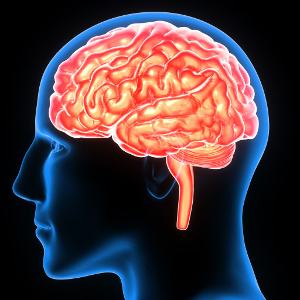Fish oil improves brain health and cognitive function in middle-aged people
 Fish oil contains EPA and DHA, two omega-3 fatty acids with a number of different functions in the brain and nervous system. It appears that middle-aged people who consume more oily fish or who take fish oil supplements have improvements in their brain structure and cognitive skills. This was shown in a study that is published in Neurology. The study results are quite interesting because cognitive decline and dementia are increasing problems that affect millions of people worldwide. The study supports previous research where it was seen that having higher concentrations of DHA in the red blood cell can reduce the risk of Alzheimer’s disease by 50 percent.
Fish oil contains EPA and DHA, two omega-3 fatty acids with a number of different functions in the brain and nervous system. It appears that middle-aged people who consume more oily fish or who take fish oil supplements have improvements in their brain structure and cognitive skills. This was shown in a study that is published in Neurology. The study results are quite interesting because cognitive decline and dementia are increasing problems that affect millions of people worldwide. The study supports previous research where it was seen that having higher concentrations of DHA in the red blood cell can reduce the risk of Alzheimer’s disease by 50 percent.
Throughout life, our diet is of great importance to our brain health, especially in old age where the risk of cognitive decline and dementia increases. Science has had a lot of focus on oily fish and the two omega-3 fatty acids, EPA and DHA, because they are known to improve neurological functions in old age, but studies focusing on middle-aged people are scarce. In a recent study of this age segment, scientists looked at the intake of omega-3 fatty acids to see how it affects different brain functions and cognitive markers of brain ageing.
The scientists studied 2,183 mentally healthy people that were part of a larger population study called the Framingham Heart Study. There was approximately the same number of men and women, and their average age was 46 years.
To assess their intake and uptake of EPA and DHA, the scientists looked at the content of these two omega-3 fatty acids in red blood cells (also known as the omega-3 index). They then used a special analyzing method that can compare omega-3 concentrations with MR scans of the brain (the entire brain, the grey matter, hippocampus, and the brain volume/hyperintensity of the white matter) as well as different cognitive functions such as memory, learning, and abstract reasoning. Also, the scientists looked at the relation between the omega-3 index, a gene called APOE-e4 (that predisposes for Alzheimer’s disease), MR scans and cognitive functions.
Facts about different parts of the brain:
- The grey matter consists of nerve cells and dendrites. This part of the brain is important for learning, memory, and reasoning.
- The white matter consists of nerve fibers (axons) that handle the exchange of electric impulses with countless nerve cells (neurons).
- Hyperintense changes in the white matter are seen in connection with normal ageing.
- Hippocampus is a brain structure in the limbic system that is important for our memory and sense of direction.
- The hippocampus may shrink in connection with ageing.
Omega-3 fatty acids improve brain health
It turns out that a high omega-3 index is associated with increased hippocampal volume and improved abstract reasoning.
Similar results were found when EPA and DHA were measured separately.
However, there was a small difference among carriers and non-carriers of the APOE-e4 gene. It looked as if there was a stronger relation between high DHA concentrations or a high omega-3 index and increased hippocampal volume in non-carriers of the APO-e4 gene. In carriers of the gene, it was observed that having higher concentrations of EPA was linked to better abstract reasoning.
The researchers also found that higher omega-3 concentrations were linked to fewer hyperintense changes in the white matter, and this was only the case in carriers of the APO-e4 gene.
According to the scientists, higher concentrations of omega-3 fatty acids in the blood and brain are linked to a better brain structure and improved cognitive functioning in middle-aged people. Also, it appears that the APO-e4 gene can add to the positive effect. More studies of this are warranted.
According to the study results, it is recommendable to make sure to get plenty of EPA and DHA to prevent cognitive decline and dementia.
The study supports an earlier observational study that is published in Nutrients. In this study, which included people aged 65 years and older, higher concentrations of DHA in the blood can reduce the risk of Alzheimer’s disease by 50 percent. Read more:
»Alzheimer’s disease: More omega-3 can cut your risk in half«
References:
Claudia L. Satizabal et al. Association of Red Blood Cell Omega-3 Fatty Acids With MRI Markers and Cognitive Function in Midlife – The Framingham Heart Study. Neurology 2022 Oct 5.
Aleix Sala-Vila et al. Red Blood Cell DHA Is Inversely Associated with Risk of Incident Alzheimer’s Disease and All-Cause Dementia: Framingham Offspring Study. Nutrients 2022 Jun 9
Search for more information...
- Created on .








